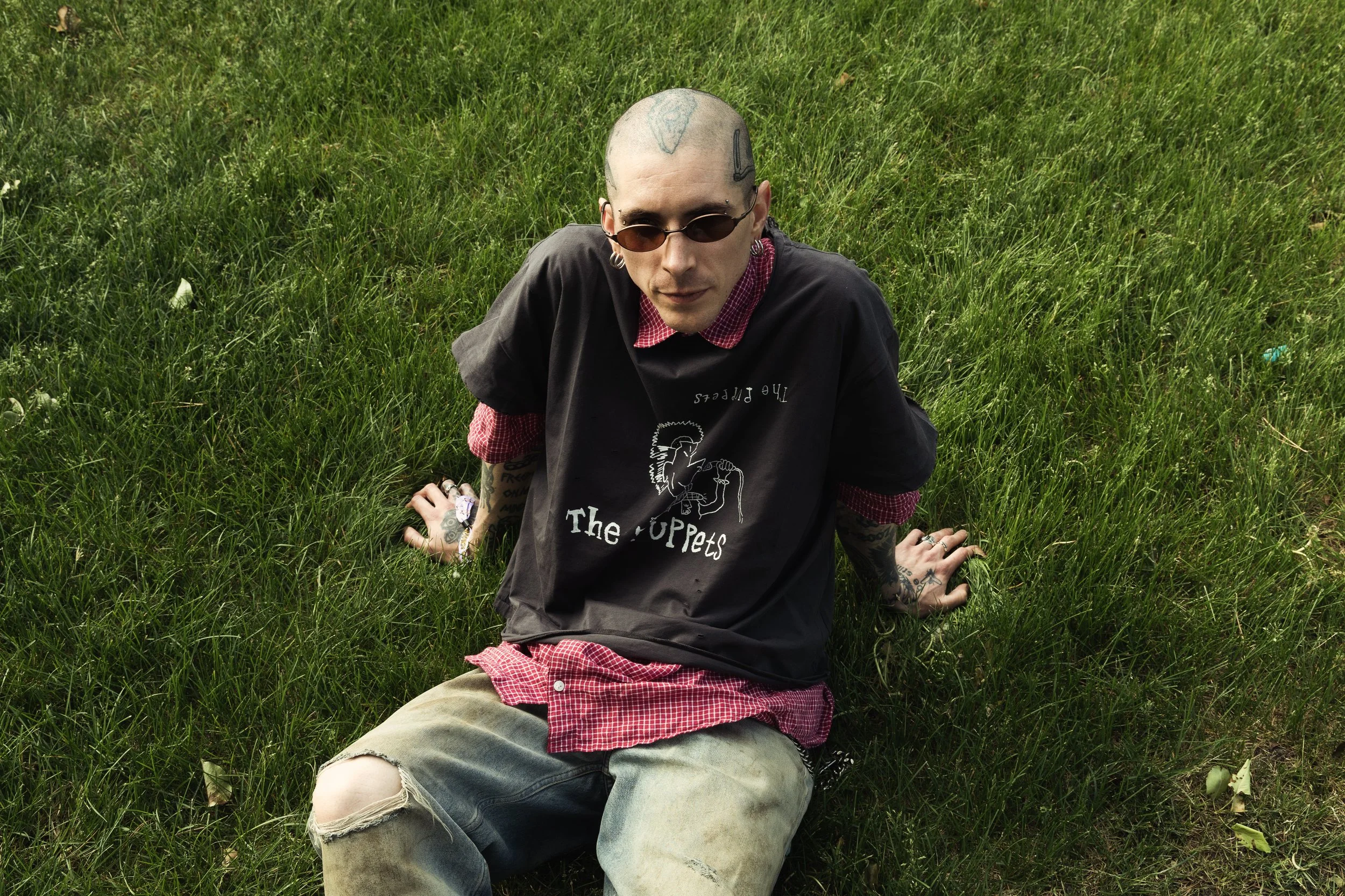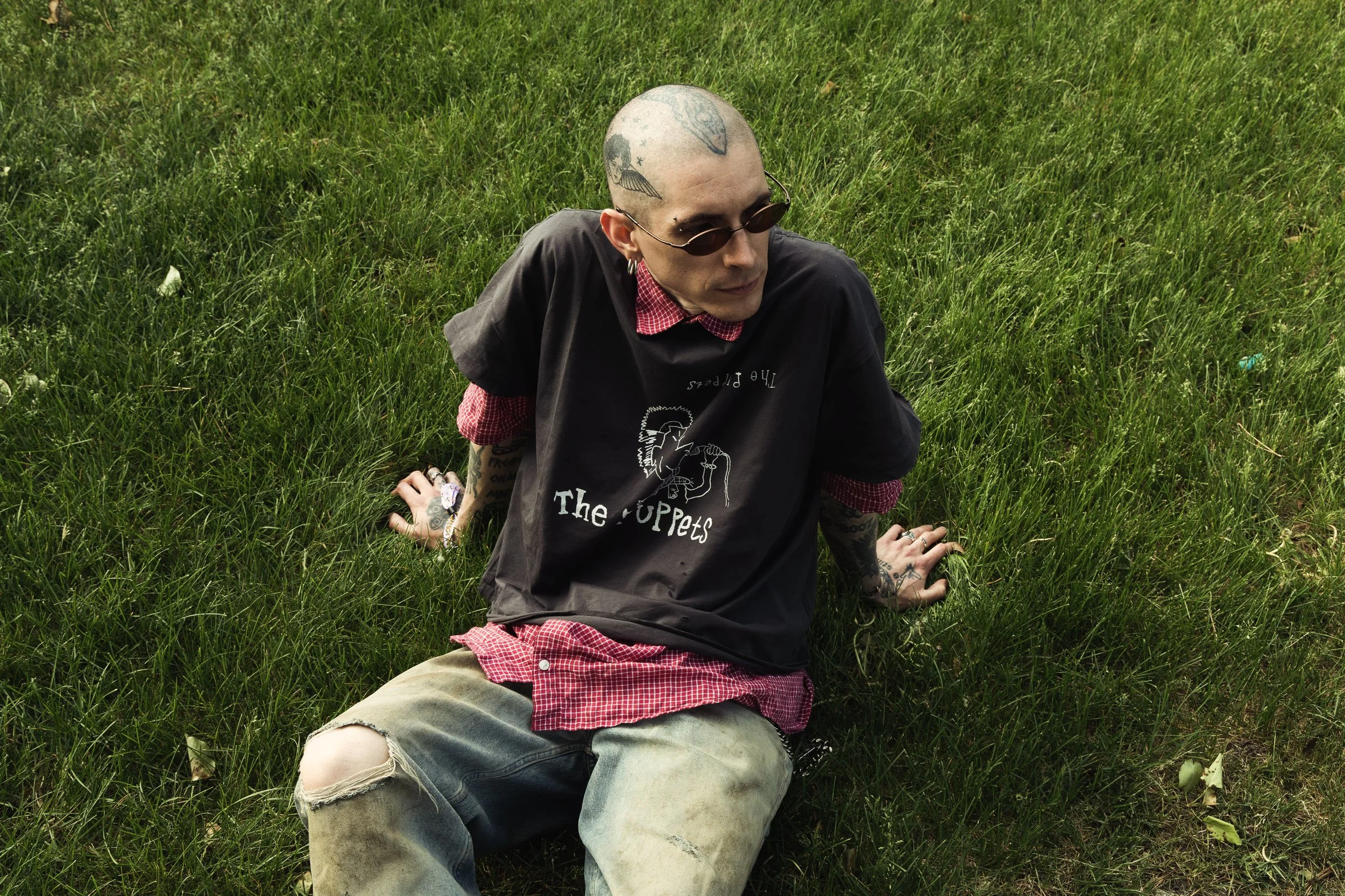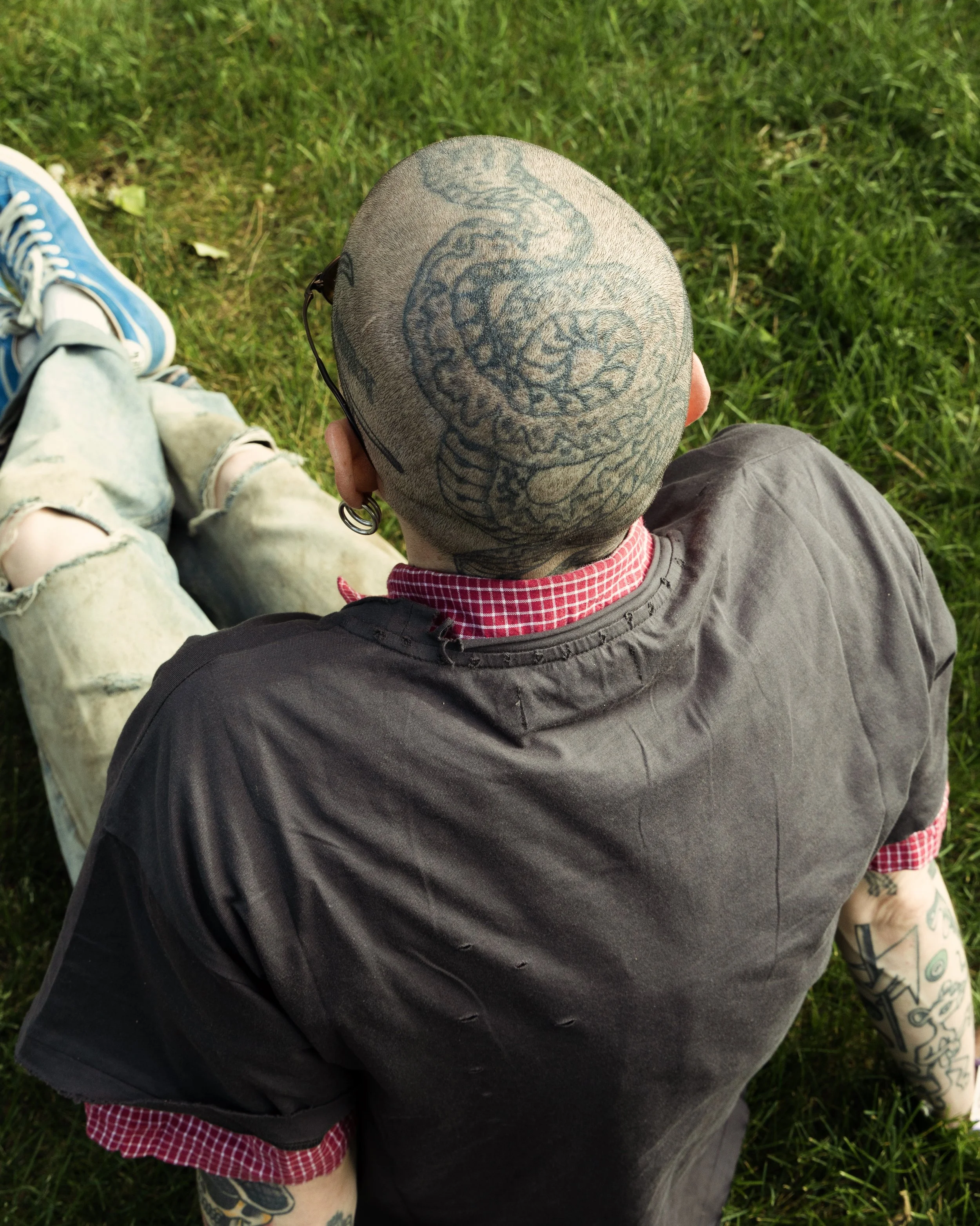Inside Youth Lagoon’s Memory Palace
A few years ago, Youth Lagoon’s Trevor Powers made an archaeological discovery when back home in Idaho.
The excavation: dozens and dozens of family VHS tapes in his parents’ basement, encased in webs of reminiscence and inspiration for his next record.
Trevor has an undeniable gift for lyricism and his most recent release, Rarely Do I Dream, is a treasure trove of poetic excellence. The record carefully weaves threads of nostalgia through arpeggiating synths, twinkling keys, and the grainy laughter of relatives and former selves. It’s a static-ridden dispatch from the past, with vignettes from a cast of fictional characters darkly sketched and dripping in haunting wit.
Trevor’s ethos as an artist is certainly hard-earned and well-deserved. Rarely Do I Dream is a harmonious union of diaristic and imaginative composition: a sensitive, astute, and sophisticated dig into the mine of memory. At Kilby Block Party last month, he let me in on a few secrets of his craft, as well as the transformative experiences authoring the narratives at play.
One of my personal favorite songs of yours is one you put out last year called “the harvest.”
I’m so happy that hits!
I grew up playing classical piano, so it’s really inspiring to hear another artist with a similar background.
Piano is my whole background. All my music is based around the piano. I didn’t come from money at all; we grew up with just enough where it made everything exciting, and I wouldn’t have it any other way. My dad worked full time, and my mom homeschooled me and my brothers. We had our own little universe that felt uniquely ours. I was so interested in music, and I was always a sucker for the piano. There was something about the way it moved me, even as a little kid. So I asked my parents if I could start taking piano lessons, and it was a huge deal for them. We didn’t have money, but they wanted to make it happen, so I took piano lessons from the age of six to the age of 12. But when I hit 13, I wanted to play guitar, and I didn’t touch anything with keys, probably from 13 to 18. So I learned theory as a kid, and all of that escaped me in those years. I spent just enough time away from it that it relatively disappeared.
But you came back to it.
When I came back to the keyboard, it was great, because I had a foundation in guitar too. The theory had disappeared enough where I was able to make music without boundaries keeping me within one place or another. Some of the theory was still in my subconscious, but it wasn’t a rule book.
It’s really special having something like that from childhood to hang onto in adulthood.
Totally. It’s a foundation. I love piano.
I do too. And what was it like growing up with Idaho as a backdrop? Did you have a musical childhood?
Idaho is all I’ve known. I travel so much now, with music, but growing up and spending my whole life in Idaho has been very vital not only to my creative process but to who I am as a person: having some sort of anchor for my psyche and my soul. Life is a whirlwind, and it’s taking you in all these different places. It’s amazing and so important to travel, because that’s how you grow and get out of your comfort zone. But having something that always stays solid has been the perfect counterweight to this tightrope walk with the universe. And Idaho is so beautiful. It’s such a foundation of home and family. Almost my entire family lives there, and I have friends that I’ve had in my life since I was a kid. So I think there’s something really special about having that long term relationship with a specific environment. It exists in a similar context to me that love does. You fall in love, and it’s a long term thing. You hit brick walls over time, and you find a way to transcend those walls. It’s just such a gift to be able to have that kind of connection with a person or a place. It’s pretty much the opposite of where our society and our culture tends to push us. You always want something novel.
People are addicted to moving. But I think there’s a distinct and important difference between stagnancy and stillness.
Yeah, absolutely. I think that there can be dangers on both sides of the fence: in strictly the transient lifestyle, where everything is novel at all times. Your emotional state will constantly be dysregulated, and you won’t have a chance to balance out that frequency of inner peace. If you don’t have inner peace, you really have nothing. You could have the best career in the world, all the money, an amazing house, but if you don’t have peace, you can’t even recognize what beauty looks like in the first place. Then there’s also the side of the fence where people can get stuck in the comforts of not pushing yourself. The right balance is right in the middle: finding ways to have that anchor while also finding ways to push yourself.
What has that path to finding inner peace looked like for you?
I’ve had a lot of things happen in my life that felt like a nightmare, health issues specifically. And I experienced the darkest side of where my imagination can go when some of that stuff started coming true. It does a crazy thing to your relationship with and recognition of what life even is to begin with. It’s so easy to fall into that trap of thinking that a good life means a smooth life or a life without adversity. It’s actually quite the opposite, because adversity will find you, no matter what. If you run from it, when it does find you, you won’t let it teach you anything. There has to be that state of recognizing the importance of every emotion that finds you, every situation, no matter how uncomfortable it is or how much you don’t want to look it in the eye. Those moments of difficulty are the ones that really wake you up and teach you what you need to learn. That has been the biggest shift for me, in my life. When I started learning how to be open to the ocean of life taking me where it needs to take me, and not fighting it. For so long, I fought it. I always had this voice in my head telling me that I had to do something or be a certain type of person. And as an artist, it’s so easy to think that you want your music to be heard in a certain kind of way or. When you keep such a tight grip on life, it never does what it needs to do. You miss out on so much beauty.
Were these discoveries at all correlated to entering and exiting the period of time where you lost your voice? I can only imagine the weight of that experience as a singer.
Totally, yeah. When I had killed off the project in 2016, it was because the project always came from a place of purity, and I didn’t want to make any compromises. I started Youth Lagoon when I was in my early 20s, and it has always been such an important filter for how I see the world, how I understand my life. I hit this point where I had lost a lot of who I was as a person. I felt really misguided. I didn’t have clarity in my life. The only true and respectful thing I could do for a project that has always maintained that purity was to kill it off. And I kept making music under my own name, but there was a difference in the way I approached it, even though it was still me. And what I mentioned before about everything in life turning upside down, that was the greatest thing that ever happened to me. I wouldn’t trade that for anything. It was in those moments where the truest and only way to move forward as an artist was to go back into that field where I had burned down that building, the Youth Lagoon moniker, and start taking those pieces of wood and rebuilding. I then had this amazing clarity and sense of direction. It’s so wild because I’m building on a foundation that has so much history, but it feels like such a brand new project now. It’s unrecognizable now in a lot of ways from what it used to be, but it maintains a thread that keeps it consistent enough to where it makes sense. My spirit has always been the same spirit, but I am also, in a lot of ways, unrecognizable from the person I used to be, which is the perfect blend in terms of the lens through which I create and understand art.
It seems like throughout the course of your life and your career, you’ve really learned how to set things down. How does that come into play now when you’re making music?
So much of it now is intuition, and that has been a big shift for me. My approach previously was very mechanical. I was chokeholding what something had to be when I sat down to make it. It felt very rigid. Now, I don’t ever know what’s going to happen when I sit down to write. People talk a lot about writing in stream of consciousness but if you stick only to that, you’re not going to have ideas that are tangible. The trick for me is having intuition, learning how to stay in that realm just long enough to get some pure, raw feeling out, and then having 5-10% of the process after that being cleaning up the mess and making it something a little more communicative and direct.
It feels like you’re slowing down and looking back in a way that is helping you move forward, as opposed to trapping you in the past.
Totally. That’s a lot of it. I love time, I love the idea of time not being linear. And in this new record, there’s so much that has been found in the archives, but it doesn’t stay in the past. It’s using those things as colors that I’m painting with, and it really only has to do with the present moment. There’s just so much within the context of time that I find so inspiring on so many levels.
Does the name Youth Lagoon have anything to do with this fascination with time and space?
I just love words. The word “youth” always weighed on my brain, because it references so much of who you are and who you end up becoming. I look at my grandma before she passed away, and there are so many things within her programming, in her brain, that she never worked out of her system when she was younger. A lot of it was trauma-based. As she got older, that programming became more and more stuck and wired into place. So with the word “youth,” so much of who we are comes down to those really formative years. But if you went through a really difficult time, that doesn’t mean you have to stay in difficult times, but it’s something that you have to put in a lot of work to change. So that word was weighing on me, and then I walked past a sign that was pointing to a lagoon on the Boise State campus. I wrote those two words together and just knew that was it.
Feels very indicative of life being a metamorphosis.
Yes, exactly. It is, it totally is.




